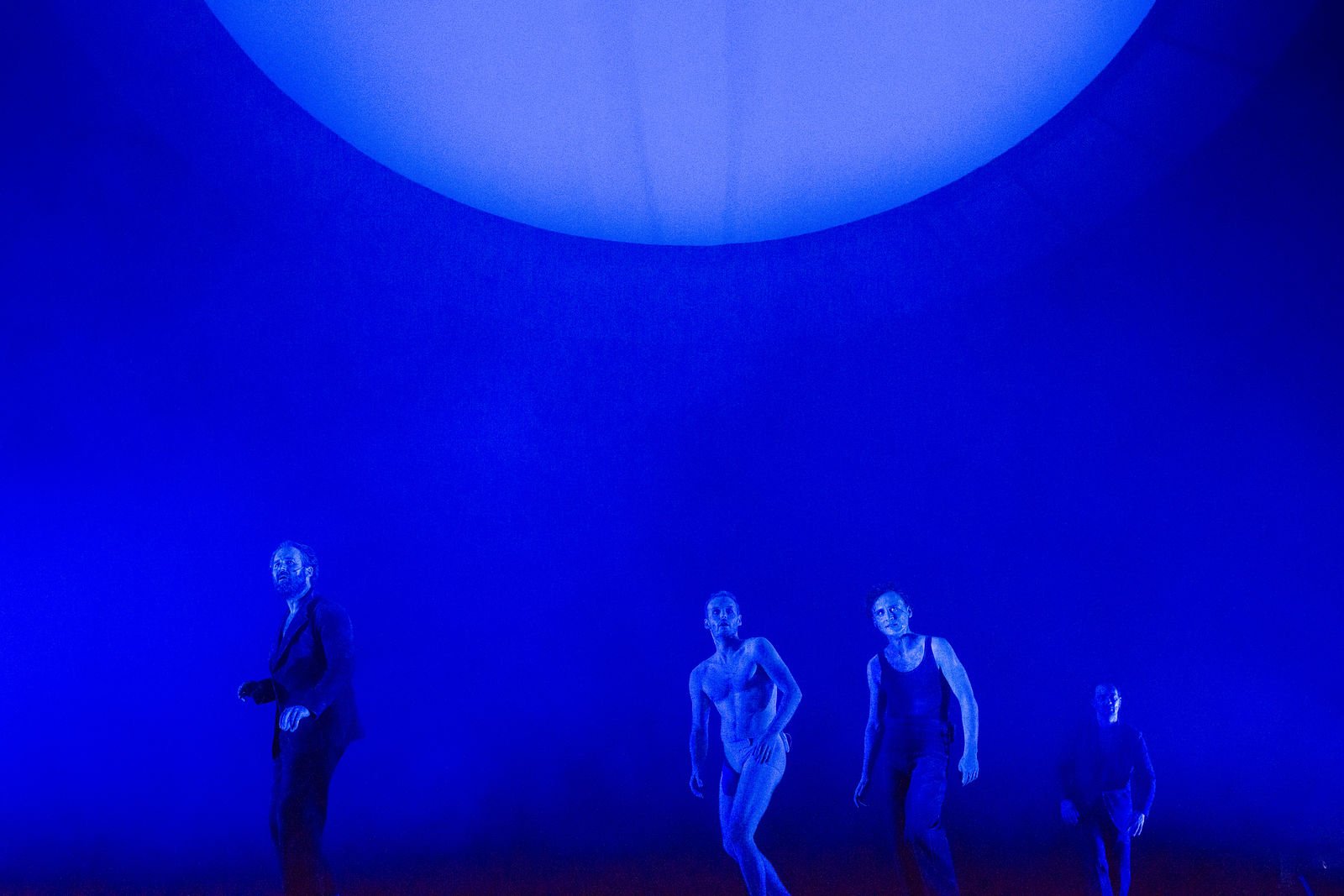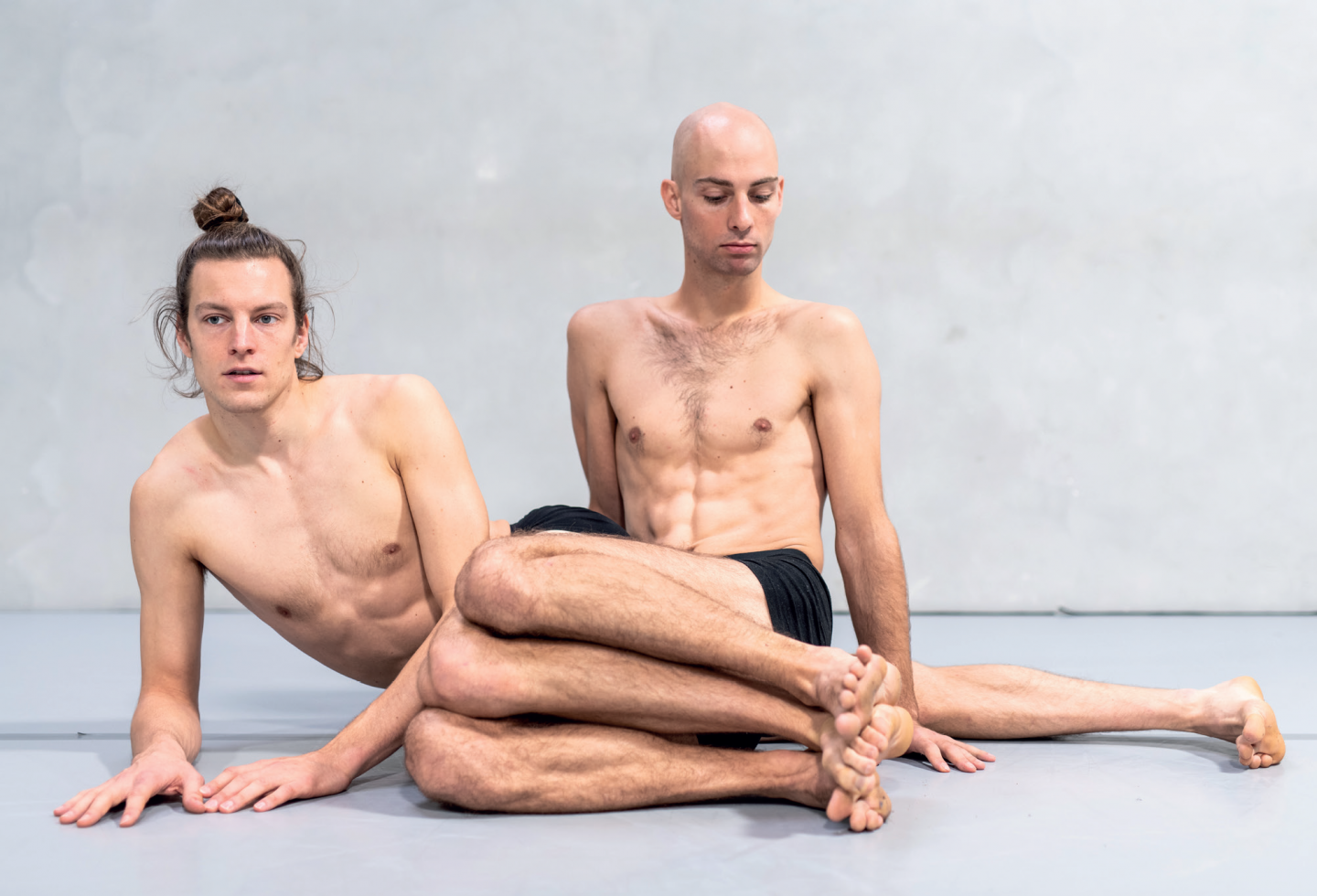Compositions

I PITY THE GARDEN
“I PITY THE GARDEN’ is a spoken word opera by interdisciplinary artist Nazanin Noori, in which sound, space and installation merge, exposing itself to the linguistic power of one of the most important contemporary poets.
Forugh Farrokhzad is one of the most significant and controversial poets of modern Iranian poetry. Her literary legacy is a poetry of female protest and radical change in the world around her. Her appeal against corruption and abusive power structures in Iran is more relevant than ever in the context of the freedom movement against the Islamic Republic.
Direction, Stage, Costumes: Nazanin Noori
Composition: Andrea Belfi
Live Music: Andrea Belfi, Sofia Salvo
Starring: Kate Strong, Samin Ghorbani, Steve Katona
Dramaturgy: Murat Dikenci

Warten auf Godot (En attendant Godot)
The groundbreaking play by Irish playwright Samuel Beckett is considered a key work of absurd theatre. A theatre that presents people's sense of disorientation in the modern world of the 20th century through seemingly nonsensical scenes and situation comedy. The need to demand stability or improvement in times of crisis seems to be inevitable for people. But what could be the principle of Godot in our technologized and self-insecure times?
Waiting for Godot has being staged at the Schauspielhaus under the direction of Ulrich Rasche. Rasche has created a unique theatre language with his visually impressive productions, which also thrive on complex stages and a penetrating language.
Direction: Ulrich Rasche
Starring: Guy Clemens, Dominik Dos-Reis, Steven Scharf, Yannik Stöbener
Composition, Musical Direction: Andrea Belfi
Live Music: Andrea Belfi, Alfred Brooks, Hilary Jeffery, Špela Mastnak, Lorenzo Setti

Through the Grapevine
Through the Grapevine is a quirky pas de deux between two men. Performers Alexander Vantournhout and Axel Guérin show their bodies, stripped of all frills.
They are trained but certainly not perfect. They do not try to convince with virtuous movements. Gradually, their athletic bodies collide with physical limitations and their movements guide them in the discovery of the strengths and weaknesses of their own specific physique. The choreography creates an interplay between these differences in proportions and physical strength. With great effort and concentration, the performers search for balance, equilibrium, and harmony without shying away from humour. They challenge one another and drive each other forward, alternately leading the dance. Through constant mutual physical contact, the synergy between touching and being touched unfolds as the base melody of the performance.

Buffalo Gals
Beauty and conflict between two worlds is at the centre of the new music theater production by Solistenensemble Kaleidoskop, “Buffalo Gals, Won't You Come Out Tonight”, based on Ursula K. Le Guin's eponymous utopian fable. This marks the first time that Director Silvia Costa and composers Andrea Belfi and Wojtek Blecharz have collaborated with the ensemble, as they jointly translate this tale about the meeting of different worlds into a visual and musical stage performance. Together, they explore how multi-perspectivity can create a new experience and a new sound.
Le Guin's “Buffalo Gals, Won't You Come Out Tonight” (1987) tells the story of a girl, Myra, who finds herself in the middle of a barren landscape with a wounded eye. A coyote comes to her rescue and takes her to a village full of talking animal presences. In a ceremonial ritual, her injured eye is replaced by that of a coyote, allowing her to perceive and understand both animals and humans. Fascinated and torn between these two worlds, a new experiential world emerges from the ambivalence and ambiguity of her position.
Director Silvia Costa develops a symbolic and pictorial language for the stage, interweaving visuality, text and music. Wojtek Blecharz’s compositions reflect his interest in the interplay between body and instrument; his abstract and haptic music comprises sounds that often integrate the musicians' gestures and movements. Percussionist, composer and experimental musician Andrea Belfi uses minimalist facets to create seemingly endless, energetic soundscapes to hypnotic effect. Over the course of the piece, the music of both composers entwines and overlaps to create a new sonic world.